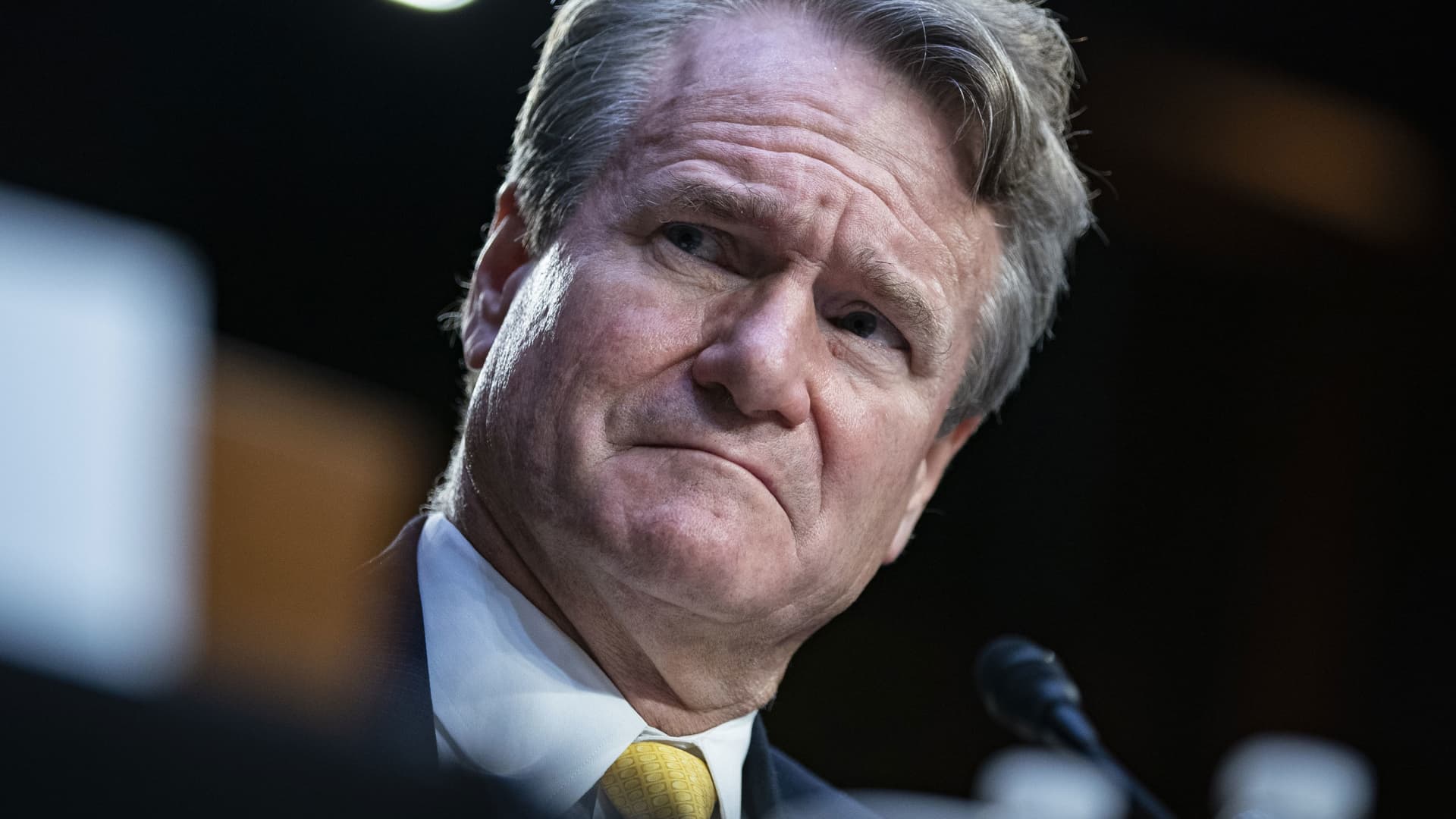U.S. consumer spending is experiencing a “mitigation of growth” but not a slowdown, Bank of America CEO Brian Moynihan said Friday.
Interest rate hikes by the Federal Reserve are starting to be felt in the housing and auto markets, and renters will see their budgets squeezed as landlords pass on higher costs, he told CNBC’s “Squawk Box Europe.” But he stressed that consumer spending remains strong.
“If you raise rates and slow down the economy to fight inflation, the expectation is you have a slowdown in consumer spending. It hasn’t happened yet. So it could happen, but it hasn’t happened yet,” Moynihan said.
“You’re seeing a mitigation of the rate of growth, not a slowdown. Not negative growth.”
Bank of America expects the Fed to hike rates by 75 basis points and 50 basis points at its two remaining meetings this year, followed by two 25 basis point increases next year. One basis point equals 0.01%.
That will take the funds rate to around 5% and the Fed can then “let it work,” Moynihan said.
The current rate of 3%-3.25% is the highest it’s been since early 2008 and follows three 75 basis point rises in a bid to combat inflation, which was running at 8.2% on an annual basis in September.
Economists, politicians and business leaders are split on whether the U.S. economy is heading for a recession or is already in one. U.S. gross domestic product grew for the first time this year in the third quarter, expanding at a higher-than-expected 2.6% annually.
JPMorgan boss Jamie Dimon told CNBC he expects a recession in six to nine months given quantitative tightening and the unknown impact of Russia’s war in Ukraine.
But for now, consumers still have strong credit, unemployment is low, wage growth is strong and corporations are in good shape with strong underlying credit — even if growth and earnings are slowing, Moynihan said. However he did concede there were risks from unforeseen events with “low probability and high impact.”
“You don’t see those risks evidencing in behavior change of companies and consumers yet. People aren’t laying off massive amounts of people, they’re not hiring as many,” he said.
Asked whether the corporate credit market was flashing any warning signs, Moynihan said, “I would not confuse credit risk with pricing risk.”
“Growth and earnings may be slowing down, again because the economy recovered very fast and had major growth that flattens out a little bit. If you see negative GDP prints, of course corporate earnings might slow down,” he added.
“But on the other hand they’re still making money, the margins are still holding … the underlying credit, the underlying structure of the credit, the underlying credit quality is very strong.”
Energy exports
Moynihan said Europe could see a recession early to mid next year before “coming back out the other side,” with the war in Ukraine and energy crisis risks on the horizon.
“But right now you don’t see the conditions because the employment’s strong, the underlying activity’s strong, the amount of stimulus that was put in is still in the markets that people don’t see it as a deep recession.”
He added: “The energy question is much different than the U.S. The good news is the U.S. is a big economy, if we can get the energy to Europe, for the people to heat their homes and industry to run, that would be a good thing. And I know all the companies are working on it, because I talk to them about it.”
Clarification: This article has been updated to clarify that Brian Moynihan was discussing growth in U.S. consumer spending.

 This “NEW CONCEPT” Trading Strategy Prints Money!… (INSANE Results!)
This “NEW CONCEPT” Trading Strategy Prints Money!… (INSANE Results!)
